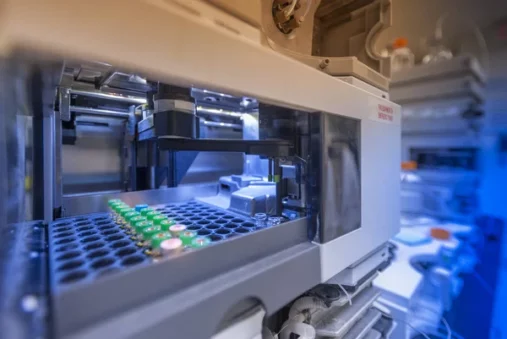- Your cart is empty
- Continue Shopping
Tips on How to Buy Used Lab Equipment
- Lab Equipment
- Posted on
-
by Siby
- 2 comments

Over the past few years, many small lab startups have been launched. And like any start-up venture there is always the necessity to maximize results with minimum budget. While every laboratory would love to have the latest, most innovative equipment that’s on the cutting edge of research and capability, it’s something that’s not always possible. If your budgets are somewhat limited, then you may have to look at purchasing used and refurbished equipment instead.
Research
There are many hoops you have to jump to find used lab equipment that is working and not isn’t damaged. You will find dealers who will knowingly sell lab equipment that doesn’t work and charge a lot for it. You will need to find the right balance between price and the actual working condition of the equipment.
It is, therefore, important to undertake adequate research on all used lab equipment dealers in the market. By doing so, you will be able to find a dealer who is trustworthy and has an established brand reputation in the market. These dealers will offer you equipment that will work effectively and will make sure that the equipment is safe to use before you can buy it. A dealer who is sure about the used lab equipment will also show you how the equipment works. If a dealer says and demonstrates that the equipment will work well, you should buy it from him. [1]
Ask about its history
For used lab equipment, one of the best things you can do is find out how old it is. Used lab equipment has a history, unlike a brand-new piece of equipment. Most of the time, how well the product was taken care of, how often it was used, and where it was used will have a big impact on how long it lasts and how well it works. You need to get answers to this question in order to figure out if the used piece of equipment is worth it.
Before you buy a lab tool, find out if there are any problems and additionally, if possible, look at its maintenance records. More the information about the history of the equipment you can get, the easier it will be for you to decide if it will be a good fit for your lab’s long-term plans. [2]
Ask for demonstrations
You need to make sure the equipment works well before you buy it. A demonstration will show you whether there are any problems and whether some repairs might be required. This will increase your confidence regarding the supplier. If you’re thinking about buying from an actual user, ask them to show you how the equipment works. This will give you a chance to see the equipment in action and to see how it works. You wouldn’t buy a car without first taking it for a spin. Make sure you test drive your lab equipment as well.
Demos are common when buying new, but you should also ask for one if you are thinking about buying used equipment. Because once you are be able to see and test the equipment, you will have more faith in the vendor. It can also help you figure out if there are any special steps or quirks that need to be taken to get the instrument to work. You essentially want to make sure it works well before you buy it. [3]

Find out about the running cost
No, you wouldn’t buy a car before you find out how much fuel or gas it consumes. Make sure that when you buy any equipment, you know how much it will cost to use each month. Look into the prices of consumables before you buy used equipment.
In addition, you should find out how much replacement parts cost for the model and brand. Having the ability to fix your instrument at a lower cost when something goes wrong can save you money even if you have to pay more for it when you buy it. This can help you make a decision between different equipment on the table. [4]
Find out how old the equipment is
When you buy used lab equipment, you’ll also want to figure out how old the thing you’re interested in is. It’s still a good idea to know how old a piece of lab equipment is, even if it can last for a long time if it’s well taken care of. When you do this, you can figure out how long it will last and how much work it will need. [5]
Make sure to look into the average service life of the equipment
Before you buy an equipment, look up how long it usually lasts to evaluate if it’s worth it. Since the device has been used, it is likely that it has been on the market for a while. Thus, there are likely a lot of reviews about the product/model on the internet. Such reviews can be very useful because they can inform you how well the equipment has held up over time, which can be very important. It’s a good idea to buy used equipment if it has a long life expectancy that goes well beyond the current age of the item. However, if the device has a short life expectancy or is nearing the end of its usable life, you should probably not buy it. [6]

Compare the total cost of owning an equipment
When you buy something new, you will have to pay more money up front. In the first few years of use, you are likely to have few problems that are not covered by a warranty. Buying used, on the other hand, could cost you more in the long run, especially if you don’t have a service plan. Look at how long each piece will last and how long you will need it for. You might end up paying as much for a used piece of equipment over time than you would if you bought it new.
If you buy something, don’t forget to think about how much it’ll cost to replace the things that you use. How much money will it cost you to buy new or used over the next 5 or 10 years? It is the best thing you can do if you buy lab equipment to think about it the same way you would if you were going to buy a new car. Lay out the pros and cons and figure out how much money you have. As time goes on, how much money can you afford to spend if you need to make repairs to your tools? It’s a good idea to either buy new and buy used. In the end, it comes down to what is available, how much you need it, and how long it will be used for.
Conclusion
These are the tips that anyone looking to purchase used pieces of lab equipment should keep in mind. Many startups disregard these considerations and wind up paying the price. It’s just smart business to be aware of what you’re getting into and where it can lead before you’re knee-deep in it.
References:
[2]- https://www.usalab.com/blog/tips-for-purchasing-used-laboratory-equipment/
[3]- https://www.mynewlab.com/blog/buying-lab-equipment-pros-and-cons/
[5]- https://www.usalab.com/blog/tips-for-purchasing-used-laboratory-equipment/

Your style is so unique in comparison to other people
I have read stuff from. I appreciate you for
posting when you have the opportunity, Guess I’ll just book mark this page.
aid for ukraine
This page definitely has all the information I needed
about this subject and didn’t know who to ask.
aid ukraine